BASIS and unibz present:Transdisciplinary Perspectives on AI's Impact on Creative and Cultural Industries
Conference with Keynotes, Workshops & Live Performances, focus on Architectur & Design
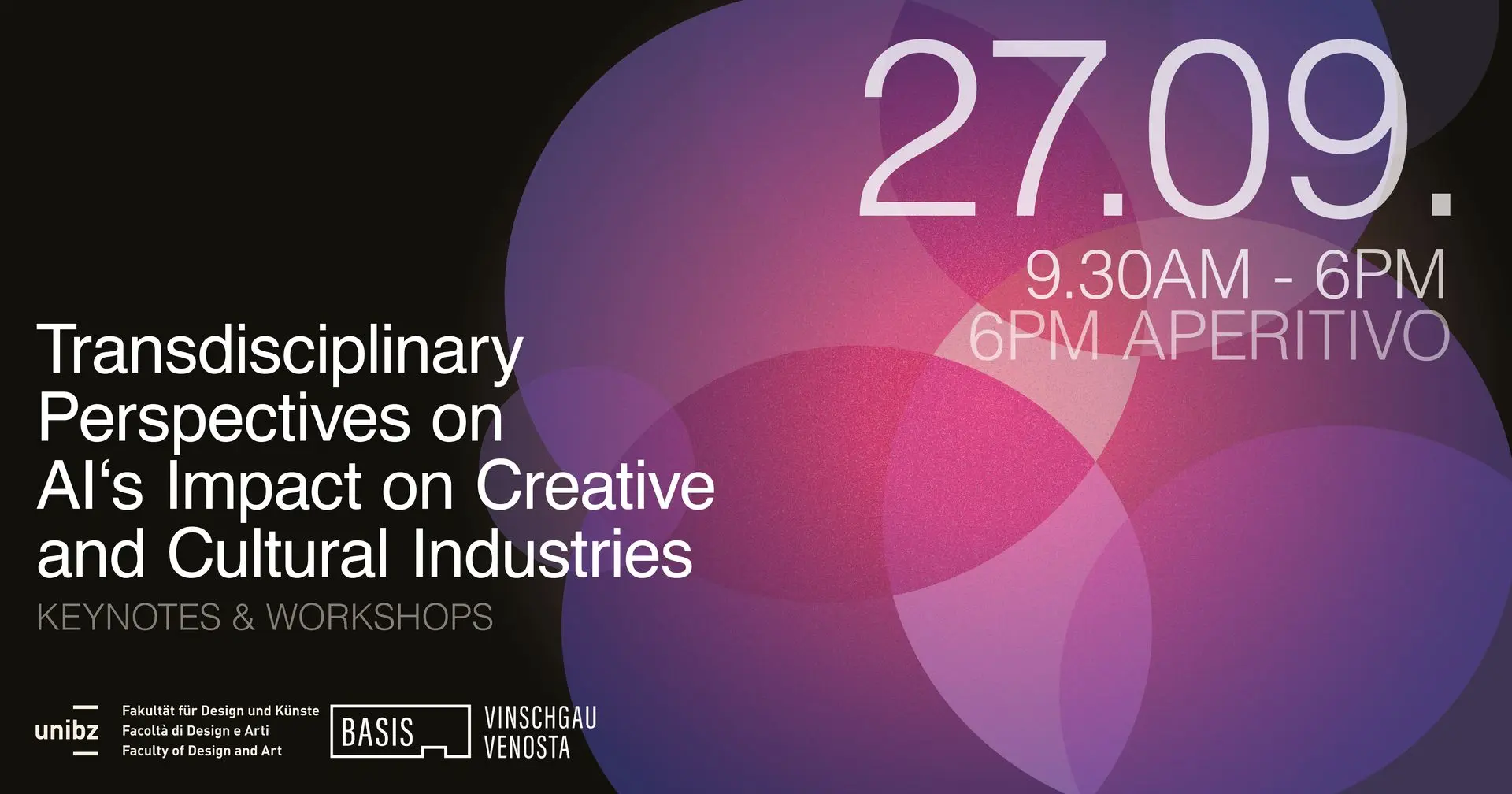
📍 BASIS Vinschgau Venosta
📅 Fr, 27.09.2024
🕙 09:30 - 18:00
🗣️ English (Translations to Deutsch & Italiano)
🎟️ Free Entry/ Freier Eintritt
🔗 Registration requested (black "Registrieren" Button)
🍕 Lunch 15€ (Registration black "Registrieren" Button untill 25.09.)
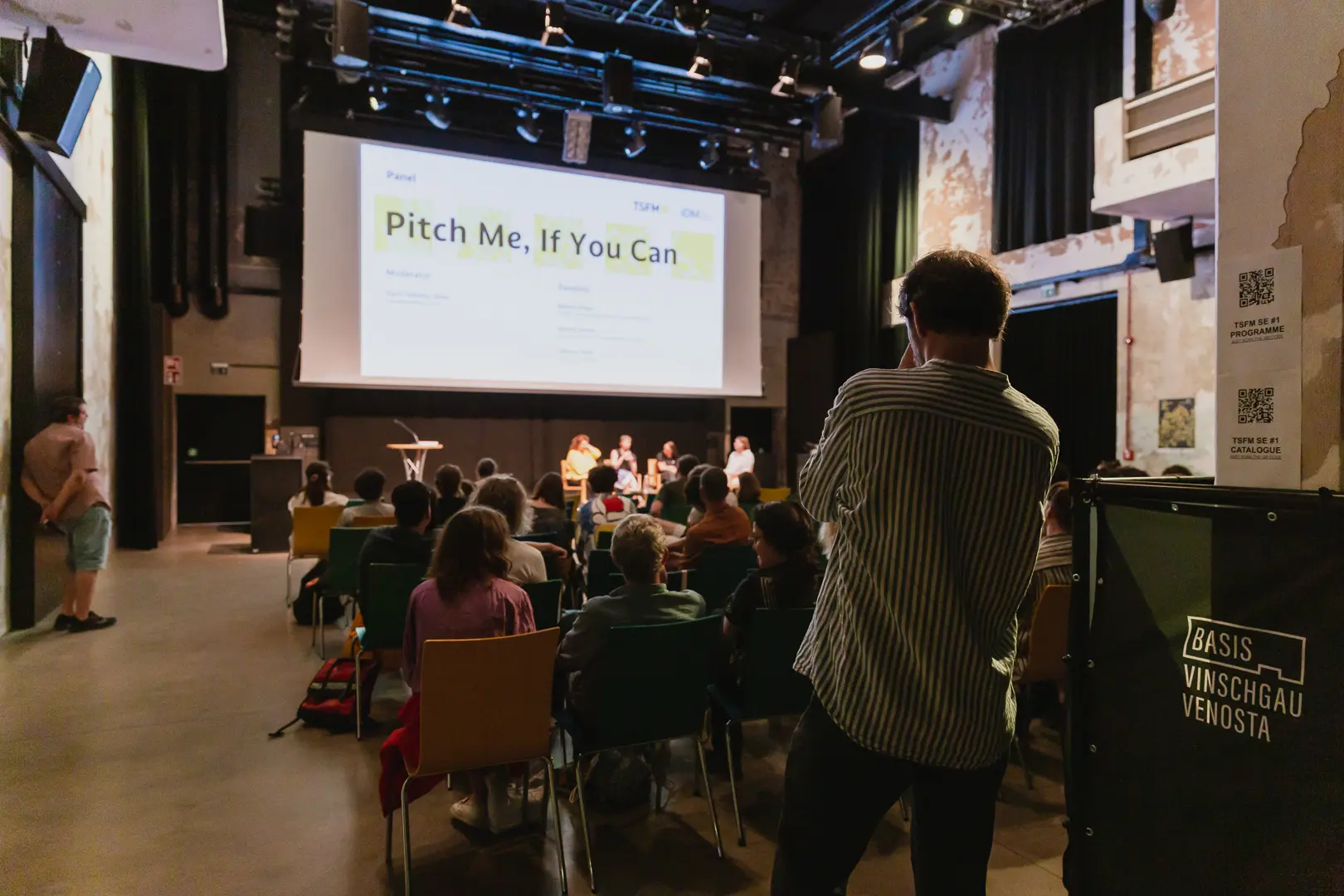
Keynotes, Workshops & Live Performances:
💡 Prof. Matias Del Campo, New York Institute of Technology
💡 Prof. Yvonne Förster, Leuphana University
💡Prof. Romuald Jamet, INRS
💙 unibz (Faculty of Design and Arts )
✨ Lunar Ring (art)
🎧 Scharmien Zandi, D#AVANTGARDE #funKI
and many more to come …
Q&A after each Keynote.
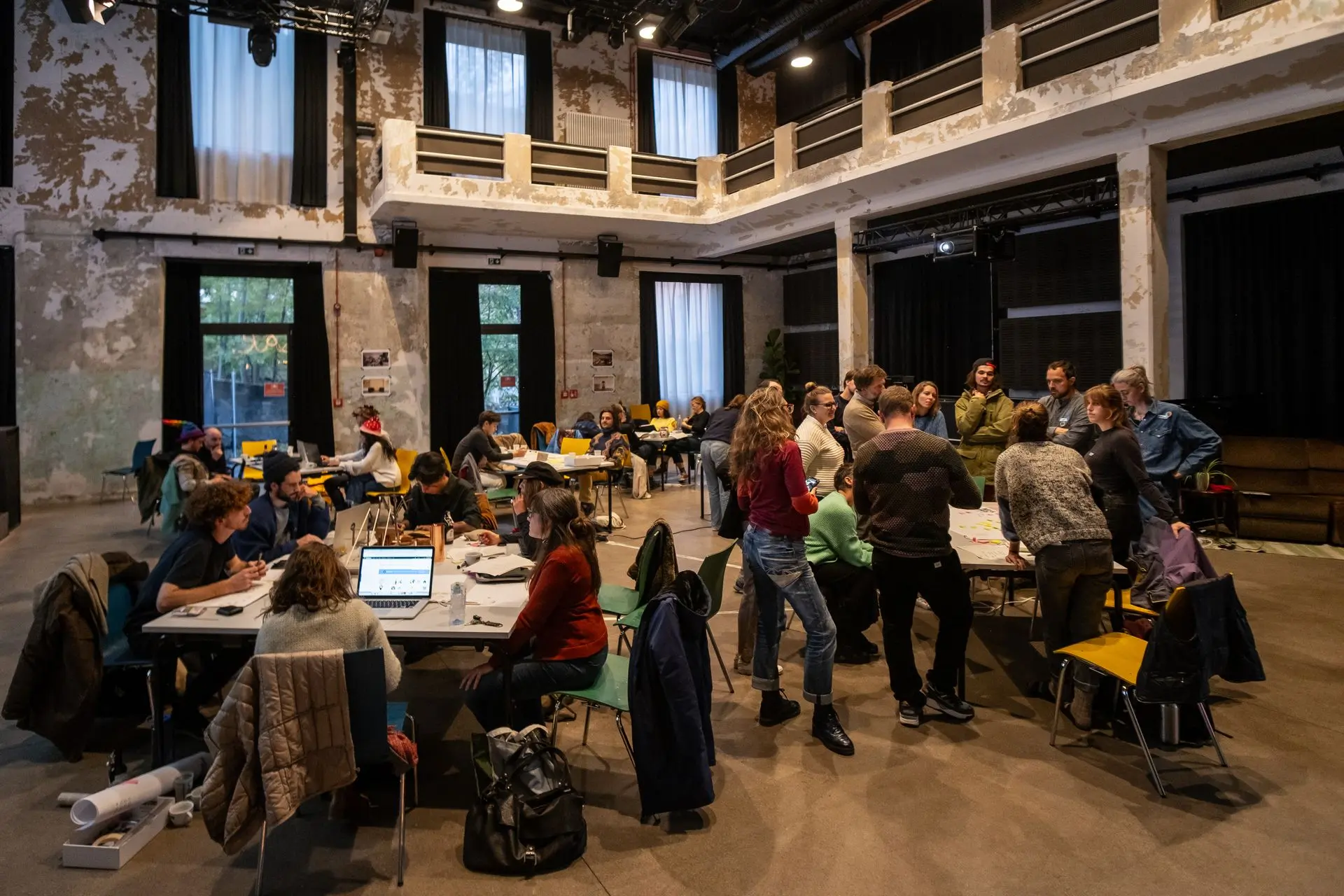
Program
Welcoming Address Free University of Bolzano & BASIS Vinschgau Venosta
Nitzan Cohen, Decan of the Faculty of Design and Arts, Free University of Bolzano Hannes Götsch, CEO BASIS Vinschgau
Prof. Matias Del Campo
"Tectonics of the Latent Space - Designing with Artificial Intelligence"
In this lecture, Matias del Campo provides some thoughts on the ontology of Artificial intelligence and its relationship to architectural production. Oscillating between aspects of wicked problems (aesthetics, agency, authorship, inspiration, creativity) and tamed problems (analysis, feature recognition, prediction), this lecture paints a picture as of how architecture might operate in a posthuman design environment.
"Creativity in the Trenches between Materiality and Predictability: Fashion Design and AI"
Today’s fashion design faces a big challenge: balancing the push for automation and predictive technology with the growing demand for personalized, sustainable pieces. This issue is layered and involves multiple aspects of the fashion industry. In my talk, I will explore two key areas: First, I will dive into the shift between physical and digital fashion—what’s often called "phygital" fashion—and how this affects the traditional design process. Second, I will look at the impact of AI on design, production, and marketing. AI is not just a tool for creating designs; it’s also a powerful marketing resource. It analyzes consumer behavior to predict future trends and needs, turning personal experiences and behaviors into data that can be used for future predictions. This approach of quantifying the qualitative influences both marketing strategies and design processes. While this can lead to innovative ideas like haptic interfaces and smart fabrics, it also risks reducing fashion to a tool for mainstreaming quantified identities. My goal is to explore this creative tension by showcasing examples from cutting-edge fashion design projects.
Prof. Yvonne Förster
Q&A
Coffee Break
Prof. Romuald Jamet
"From Disco-Morphosis to AI-Morphosis of Music Ecosystem: A Sociocritical Perspective"
With the
concept of "discomorphosis" of music, A. hennion (1981) aims to show
how the “album” format became the aesthetic norm, mainly due to technical
constraints. Corresponding to the “space-time” that could be recorded on a 33
rpm record, the album/12-track format (between 3“30 and 4”) became the norm
both in artistic production and aesthetic reception. Correlated with the
singles "radio edit" of , this standard remained in place despite the
evolution of supports (cassettes, CDs, minidiscs, etc.) until the end of the
20th century.
The arrival
of Napster and peer-to-peer platforms changed listening practices, but not
production or industry standards. Described by Granjon and Combes (2007) as a
“digimorphosis” of listening practices, these two authors point out that the
digitization of musical content has induced a feeling of abundance and ubiquity
by consumers. Listening practices have shifted towards a reorganization
of audio content in "playlists format" created by individuals
themselves. This digitization of listening practices should of course be seen
in the context of the emergence of contemporary streaming platforms (Spotify,
YouTube music, etc.).
From these
perspectives, what effects will be produced by algorithmic technologies and a
fortiori generative AI on listening practices and consumption? What
socio-industrial designs are being deployed? what will be the social, technical
and legal impacts?
Based on
our current research, we will show how the AI-ization of culture and cultural
content is contributing to yet another crisis in the music ecosystem.
"WTF is AI Music?"
Music and AI refers to the development of software tools that utilize artificial intelligence to create music. As with applications in other fields, AI is driving various applications in music creation, from interactive composition technology to applications that influence not only the composition, production and performance of music, but also the way music is marketed and consumed.
WTF is AI & AI Music?
What is computer based & generated composing? Does computer-generated composing exist at all? What data is used and who will make money with it?
Is it art or can it go away?
This talk will explore and test several fast-growing platforms to get an overview of where the journey of AI and music is heading.
Scharmien Zandi
Q&A
Lunch Break
Workshops
"Architecting with AI; from a hand sketch to a BIM model"
Mustapha El Moussaoui, PhD, unibz
Orjola Braholli, Fraunhofer
"WTF is AI music?"
Scharmien Zandi, D#AVANTGARDE #funKI
"Beyond the embedding horizon - How to re-think the creative process in the era of generative AI"
Gonçalo Guiomar, Lunar Ring
Coffee Break
Discussion – Roundtable with
- Orjola Braholli Fraunhofer
- Alexandros Lavdas, Senior Researcher, eurac Research
- Sonia Matos, unibz
- Andreas Metzner Szigeth, unibz
- Manuela Schrattenecker, IDM
Moderation: Mustapha El Moussaoui, PhD & Ingrid Kofler, unibz
Closing of the conference
Mustapha El Moussaoui, PhD & Ingrid Kofler, unibz
Music (Sharmien Zandi) and Performance (Lunarring)
and DJ Set
Speakers
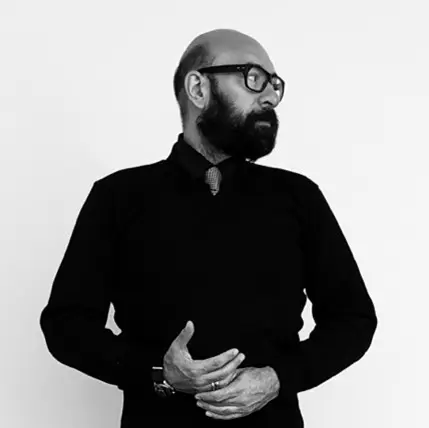
Dr. Matias del Campo
is a registered architect, designer, and educator. He is an Associate Professor at the New York Institute of Technology, and director of the MSACT program – The Architecture and Artificial Intelligence Laboratory at UoM, and affiliate faculty member of Michigan Robotics and MIDAS (Michigan Institute of Data Science). Matias del Campo is the co-founder of the architecture practice SPAN. Their award-winning architectural designs are informed by advanced geometry, computational methodologies, and philosophical inquiry. Most recently, he published the AD Artificial Intelligence in Architecture as well as the book Diffusions in Architecture, Artificial Intelligence and Image Generators both with Wiley. His book Neural Architecture – Design and Artificial Intelligence was published with ORO editions.

Yvonne Förster
is a Foreign Expert in China and an associate professor of Philosophy at Leuphana University in Lüneburg, Germany. She earned her PhD in Philosophy from Friedrich Schiller University in Jena, Germany, where she explored the experience and ontology of time (2012, Zeiterfahrung und Ontologie. Perspektiven moderner Zeitphilosophie, München: Fink). Throughout her career, she has taught Aesthetics, Phenomenology and Philosophy of Technology as a visiting professor at several universities, including Bauhaus University Weimar, the University of Kassel, the University of Flensburg, and the Chinese University of Hong Kong. From 2010-16, she held a Junior Professorship of Cultural Philosophy and Philosophy of Art at Leuphana University, Germany. She has been recognized with Senior Research Fellowships at the Media Cultures of Computer Simulation Institute at Leuphana, the Cultural Sciences Institute at the University of Konstanz, and GCAS College Dublin. Her research dives into humanmachine relationships, critical posthumanism, the future of technology and fashion, and theories of embodiment.
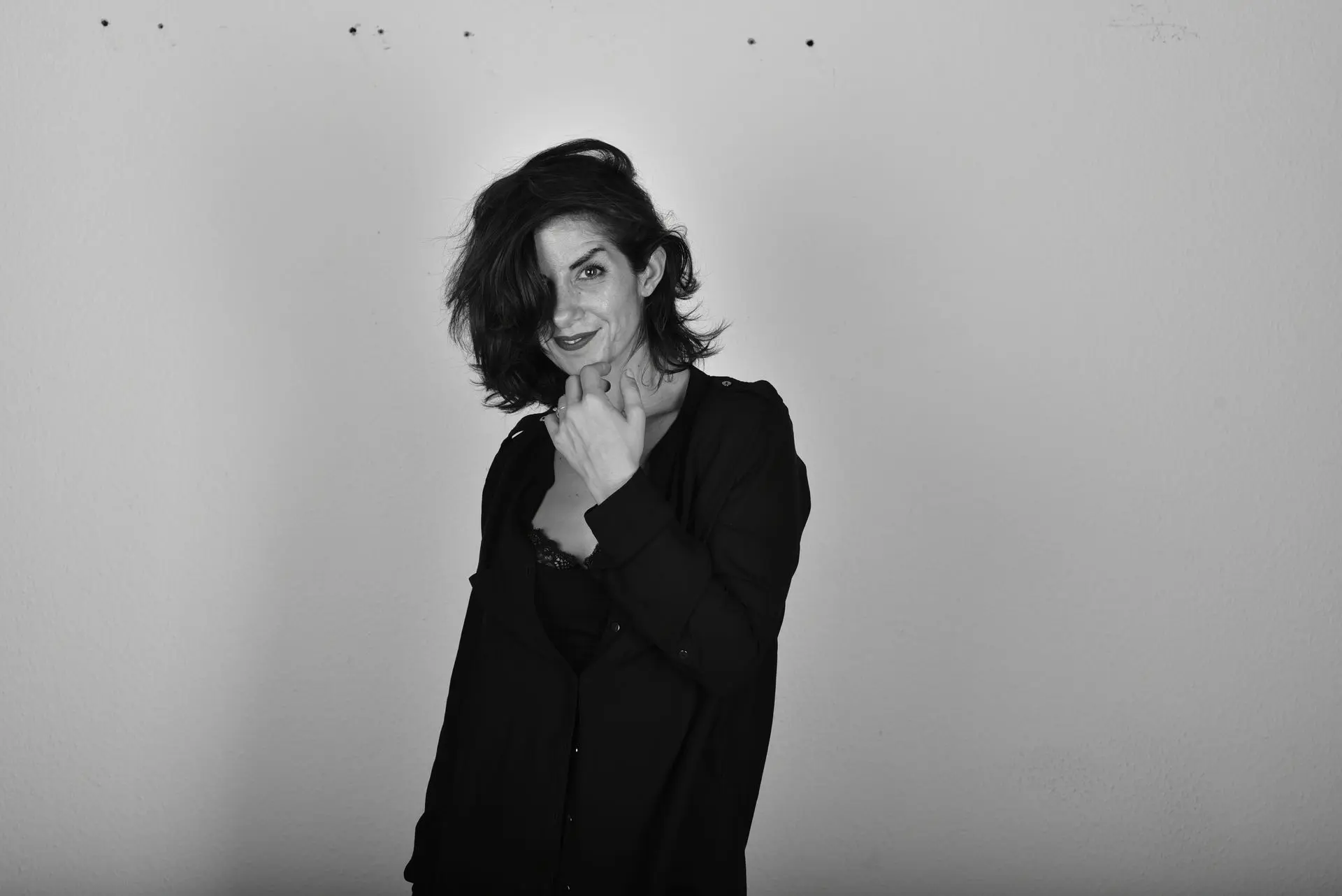
Sharmien Zandi
Scharmien Zandi works as a professional composer and musician for
theatre, opera and with various musicians for live shows. She also writes music
and songs for movies. She studied classical singing (soprano), makes screams
& improvisation with her voice and plays a variety of instruments (piano,
guitar, synthesizer, flute, Kurdish Daf). In 2020 Scharmien received the
Austrian Music Theatre Prize for her show Amour Fou in the category „Best Off
Production“, as well as in 2022 she received the Startstipendium for Music and
Performing Arts from Austria, where she works on the form of opera performance
as a staging and for mediation, with AI in the field of music, as well as
computer-aided composition (e.g. algorythmic composition, supersymmetrical
composition technique by Hofstetter Kurt). She is also president of the iAKW
association and co-founder of the artists‘ collective D#AVANTGARDE, where she research new
formats, perspectives and new interpretations of the present and future.
Through funKI she started to mess around with AI and create musical projects,
performances and workshops.
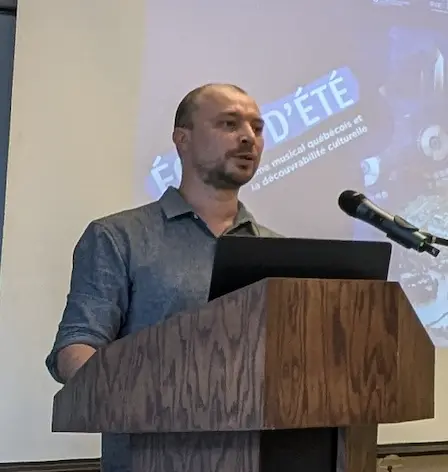
Prof. Romuald Jamet
Romuald Jamet is Associate Professor of Sociology at the Institut national de la recherche scientifique (Quebec, Canada). His initial research for his doctoral thesis focused on the relationship between music, politics and everyday life in the Parisian and Berlin anarchist scenes. His thesis (Que musiquent les musiciens?) developed a critical and pragmatic approach to music and the cultural industries.
Since his arrival in Quebec, R Jamet looks at the relationship between Quebecers and Quebec music via streaming platforms in everyday life and in the political and ethical construction of cultural consumption.
As cultural consumption and cultural politics sociologist, his works focus now on industrial and creative industries, discoverability and music through technological changes and cultural policy.

Lunch
Don't forget to sign up for lunch. The cost is €15 per person. A registration by September 25 is sufficient (vegan alternatives available) 🍽️. For the rest of the day, drinks and "snacks" will be available.
WTF is AI Music?
Music and AI refers to the development of software tools that use artificial intelligence for music creation. As with applications in other fields, AI is driving various innovations in music creation, from interactive composition technology to applications that not only impact the composition, production, and performance of music but also the way music is marketed and consumed.
In Collaboration with:
